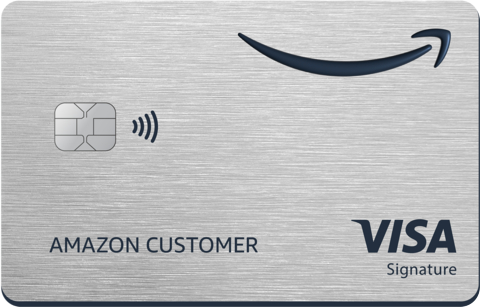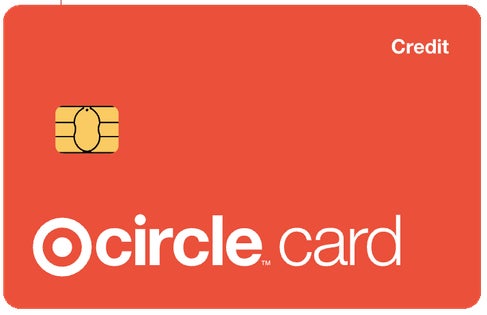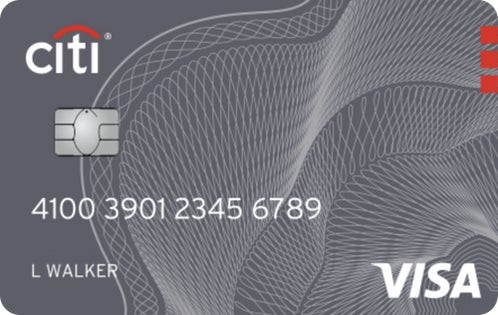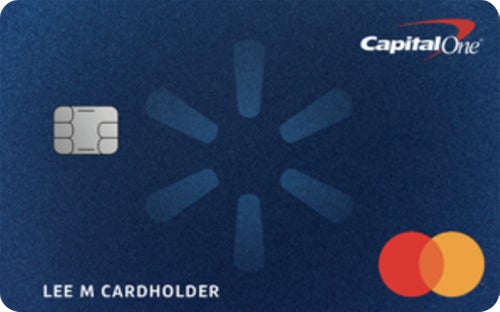'ZDNET Recommends': What exactly does it mean?
ZDNET's recommendations are based on many hours of testing, research, and comparison shopping. We gather data from the best available sources, including vendor and retailer listings as well as other relevant and independent reviews sites. And we pore over customer reviews to find out what matters to real people who already own and use the products and services we’re assessing.
When you click through from our site to a retailer and buy a product or service, we may earn affiliate commissions. This helps support our work, but does not affect what we cover or how, and it does not affect the price you pay. Neither ZDNET nor the author are compensated for these independent reviews. Indeed, we follow strict guidelines that ensure our editorial content is never influenced by advertisers.
ZDNET's editorial team writes on behalf of you, our reader. Our goal is to deliver the most accurate information and the most knowledgeable advice possible in order to help you make smarter buying decisions on tech gear and a wide array of products and services. Our editors thoroughly review and fact-check every article to ensure that our content meets the highest standards. If we have made an error or published misleading information, we will correct or clarify the article. If you see inaccuracies in our content, please report the mistake via this form.
The 5 best store cards for shoppers: Earn rewards on your purchases





If you've shopped at any major store, you've likely heard their credit card pitch. More often than not, signing up for a store credit card to get a one-time discount isn't worth it. However, there are a few co-branded store cards that are worth considering.
Just be sure to pay off the entire statement balance each month in order to avoid the typical high APR most store cards carry.
- 5% back at Amazon.com, Whole Foods Market, Amazon Fresh, and on Chase Travel with eligible Prime membership
- Earn 3% back at Amazon.com and Whole Foods Market
- 2% back at restaurants, gas stations, and local transit & commuting, including rideshare
- 1% Back on all other purchases
- 5% back at Amazon.com, Whole Foods Market, Amazon Fresh, and on Chase Travel with eligible Prime membership
- Earn 3% back at Amazon.com and Whole Foods Market
- 2% back at restaurants, gas stations, and local transit & commuting, including rideshare
- 1% Back on all other purchases
If you're a frequent Amazon shopper, the Amazon Rewards Visa Signature should be an easy decision. Cardholders will earn an impressive cashback rate for Amazon and Whole Foods purchases for no annual fee or membership. Cardholders get a $50 Amazon gift card upon approval if you need more incentives.
In addition to its rewards, the card can help protect your purchases with its Extended Warranty and Purchase Protection perks. It can also give cardholders some added security while traveling thanks to its Travel Accident Insurance, rental car insurance, and Baggage Delay Insurance, among others.
While this version of the card doesn't require a Prime membership, if you already have one, you'll be issued the Amazon Prime Rewards Visa Signature card. It offers 5% cashback instead of 3% and a larger gift card as a welcome bonus.
Pros:
- Good rewards
- Shopping and travel protections
- No annual fee or membership fee
- Access to Amazon's huge collection of goods
- $50 gift card upon approval
Cons:
- Prime membership needed to get better rewards

Amazon Rewards Visa Signature Card
- 5% off every day at Target and Target.com
- Earn 2% on dining and gas purchases
- 1% everywhere else outside of Target
- 5% off every day at Target and Target.com
- Earn 2% on dining and gas purchases
- 1% everywhere else outside of Target
If Target visits are the highlight of your weekend, you've likely come across an offer for the Target RedCard. It's a great way to earn a solid cash back rate for all of your Target purchases. At no annual fee, 5% cashback is an impressive rate. However, cardholders are limited to only using it at Target.
That said, you can use the card to purchase gift cards for other retailers and earn 5% cashback for them, meaning cardholders can still earn rewards for non-Target purchases.
The benefits include extended returns, two-day shipping, and exclusive offers. So it would make a good addition to any Target-lover's wallet.
Pros
- 5% cashback for Target purchases
- Extended returns
- Two-day shipping
Cons
- It can only be used at Target

Target RedCard
Wayfair Mastercard
Best for Wayfairers
Is your house in need of some new furniture? The Wayfair Mastercard could be a good choice. And not only will you earn rewards for that new dining set, but you can also use the card for groceries if you don't have a dedicated card that earns more.
In addition to its 5% rewards, the Wayfair Mastercard earns 3% cash back for groceries, 2% back for eligible online purchases, and 1% for everything else. Ineligible online purchases include subscriptions or memberships, schools or teaching institutions, utilities, repair services, and direct marketing, among others.
The card also has a bit of versatility when it comes time to order. For every Wayfair purchase, you can choose to either earn rewards or utilize a deferred financing option where you can pay the purchase down within a specified time at no interest.
Pros
- 5% cashback with Wayfair
- 3% cashback for groceries
- No annual fee
- Differed financing options
Cons
- High APR
- Few other perks
- 4% cash back on eligible gas and EV charging purchases for the first $7,000 per year and then 1% thereafter
- 3% cash back on restaurants and eligible travel purchases
- 2% cash back on all other purchases from Costco and Costco.com
- 1% cash back on all other purchases
- 4% cash back on eligible gas and EV charging purchases for the first $7,000 per year and then 1% thereafter
- 3% cash back on restaurants and eligible travel purchases
- 2% cash back on all other purchases from Costco and Costco.com
- 1% cash back on all other purchases
The Costco Anywhere Visa Card will cost you nothing more than the price of a Costco membership. So if you're already a member, there's no reason to not get the Costco card. Earn rewards for the purchases you're probably already making, like Costco gas and goods.
It can be used anywhere Visa is accepted and earns a solid cashback rate for dining and travel purchases. And again, while there is no annual fee, you will need to be a Costco member, which costs $60 annually.
Pros
- Good rewards for Costco gas
- It can be used outside of Costco
- Low APR
Cons
- Few perks
- Costco membership required

Costco Anywhere Visa Card
- Earn 5% cash back on Walmart.com purchases, including pickup and delivery
- Earn 2% cash back on purchases in Walmart® stores, Murphy USA and Walmart® fuel stations
- 2% cash back on restaurants and travel purchases
- 1% cash back on all other purchases everywhere else Mastercard® is accepted
- Earn 5% cash back on Walmart.com purchases, including pickup and delivery
- Earn 2% cash back on purchases in Walmart® stores, Murphy USA and Walmart® fuel stations
- 2% cash back on restaurants and travel purchases
- 1% cash back on all other purchases everywhere else Mastercard® is accepted
The Walmart Rewards Mastercard offers shoppers good rewards for their online Walmart purchases. The card can be used anywhere Mastercard is accepted, but cardholders will only earn 1% cashback for those purchases. However, it doesn't come with many benefits aside from its rewards.
Pros
- 5% cashback for online Walmart purchases
- It can be used outside of Walmart
Cons
- Only 2% cashback for in-store purchases
- Potential high APR
- Few perks

Capital One Walmart Rewards® Mastercard®
What's the best store card?
The best choice for a store card is going to be the Amazon Rewards Visa Signature card. Not only does it feature good rewards for Amazon's massive catalog of goods, but it also offers shoppers useful protections for their purchases and for their belongings while traveling.
It doesn't require an annual fee, but for those who are Prime members ($139 annually), you'll be issued the Amazon Prime Rewards Visa Signature instead. It's metal and features 5% cashback instead of 3%.
Card Name | Perks | Rewards |
Amazon Rewards Visa Signature |
|
|
Target RedCard |
|
|
Wayfair Mastercard |
|
|
Capital One Walmart Rewards Mastercard |
|
|
Costco Anywhere Visa Card |
|
|
Which store card is best for you?
Each store card has its drawbacks and limitations. What's important is finding a card that matches your spending without having to change your spending habits to fit the card. Here's a brief overview of which card is best for what kind of consumer.
Get this card… | If you are… |
Amazon Rewards Visa Signature | Anyone who shops with Amazon fairly regularly. |
Target RedCard | A frequent Target shopper and don't mind buying gift cards to get rewards with other merchants. |
Wayfair Mastercard | Someone who likes to buy new outdoor/indoor furniture every few months. |
Capital One Walmart Rewards Mastercard | Someone who prefers to shop online with Walmart. |
Costco Anywhere Visa Card | Already a Costco member. It won't cost you anything extra to earn rewards for things you're buying already. |
How did we choose these cards?
These cards were chosen by comparing the APRs, rewards, special offers, and perks of store cards. A lot of store cards are inundated with high APRs, unnecessary fees, and one-time promotions meant to hook consumers but that don't necessarily hold long-term value.
The cards above were chosen because they stood out from the rest, either by having worth-while perks, strong rewards, lower APRs, or a combination of all of the above. They can mostly all be used outside of their respective stores too, which gives them a bit more versatility for cardholders.
Are store cards a good idea?
In some instances, yes. If you shop frequently with a store, which could be once a week or a handful of times per month, it could make sense to get a store card. However, you want the card to work for you, so don't change your shopping habits to fit the card.
And keep in mind a lot of store cards have high APRs. Be sure you're paying off your monthly statement balance in full each month to avoid interest charges. Additionally, make sure you'd use a card beyond any initial offerings to ensure long-term value over short-term rewards.
Can these store cards be used everywhere?
For the most part. The Visa cards (Amazon and Costco) can be used anywhere Visa is accepted, and the Mastercards (Walmart and Wayfair) can be used anywhere Mastercard is accepted. The only card on this list that can't technically be used elsewhere is the Target RedCard.
However, consumers can use the card to purchase gift cards at Target which can then be used elsewhere. The gift card will count as an eligible purchase for the Target RedCard's 5% off rate too, so you'll still earn rewards for the purchase.
Are there any alternative credit cards worth considering?
It's a good idea to first consider a general rewards credit card or a flat-rate credit card before choosing a store card. They tend to have lower APRs as well as a broader selection of perks and rewards.
Here are a few good choices:
- Blue Cash Preferred from American Express: If you need a good card for gas and groceries, look no further. It does have a $95 annual fee ($0 intro annual fee for the first year), but its high rewards will help you forget about it. It earns 6% cashback at select U.S. supermarkets (on the first $6,000 spent, then 1%) and on select U.S. streaming services, plus 3% cashback at U.S. gas stations and on transit.
- Chase Freedom Flex: The Freedom Flex is a good choice for consumers who like to spread their shopping around. It earns 5% cashback (up to $1,500 in total combined purchases each quarter you activate) for bonus categories that change each quarter, plus static 5% and 3% categories. It has no annual fee and comes along with some pretty impressive perks.
- Wells Fargo Active Cash: A simple option that will earn 2% cashback for every purchase regardless of where you shop. It has no annual fee, no rewards limit, and has good Visa Signature protections.